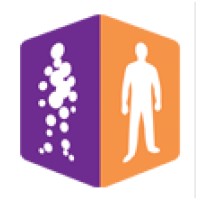Powered by ARTEFACT
Bootcamp
Data Engineering
- +5000 Alumnis in the world
- 83% Rate of professional integration after 6 months
- +500 Partner companies
Our 2 next training sessions
|
Remaining places |
Format |
Time |
Dates |
|
|---|---|---|---|---|
|
9
|
Hybride - Paris
|
5 weeks - Full-time
|
04/11/2024 -> 06/12/2024
|
|
|
16
|
Hybride - Paris
|
5 weeks - Full-time
|
20/01/2025 -> 21/02/2025
|
Bootcamp
About you
Data Engineering
Career courses
remaining space
from at
Thank you for your application.
Next steps
Choose your session
Find out more about our programme!
Master the fundamental skills of a Data Engineer
Program Data Engineering Bootcamp
Module 1
Software EngineeringModule 2
Data HandlingModule 3
Data Pipelines & Data OpsModule 4
Cloud Architecture1 week
Software Engineering best practice
➜ Software Engineering in Data ➜ Testing, Debugging, Clean code and documentation ➜ CI/CD in Data Engineering ➜ Python for Big data (Data Lake, Scrapping, Testing) ➜ Docker basics and deployment on GCP1 week
Handle large-scale data
➜ SQL on BigQuery and for a local database ➜ Python for data manipulation (Numpy, Pandas, GreatExpectations) ➜ Database backend and management ➜ Docker compose ➜ Data Visualisation & Dashboarding1 week
Send clean data
➜ Introduction to Extract Transform & Load (ETL) and Extract Load & Transform (ELT) ➜ Orchestration with DBT & Airflow ➜ Monitoring & logging a data pipeline ➜ Streaming (Kafka) & Batch Processing1 week
Deploy at scale
➜ Introduction to cloud computing ➜ Data storage and processing in the Cloud ➜ Cloud security and best practice ➜ MLOPS & LLMOPSSkills
✔ Implement unit tests on a Data Science project ✔ Deploy a docked application on App Engine ✔ CI/CD on Github ActionsSkills
✔ Deploying a SQL database locally via Docker Compose ✔ Validate and clean data by implementing quality tests ✔ Create a large-scale transformation pipeline via SparkSkills
✔ Data Streaming with Kafka and Pub/Sub ✔ Creating a robust and complete data pipeline in ETL or ELT ✔ Implement a dashboard to monitor your pipelinesSkills
✔ Mastering the various workings of the modern Cloud ✔ Deploying a complete architecture via Kubernetes ✔ Putting Machine Learning models into production while ensuring drift managementClassic training day
Our days are organised to make it easier for you to learn and progress.
| 09h30 |
10h30 |
13h |
14h |
17h30 |
18h30 |
CoursesAfter a good cup of coffee, we start with a lesson on the topic of the day. No slides or long theoretical explanations: our courses are totally practical and based on real cases. |
ChallengesNow it's your turn! For each day, we've designed a series of exercises of increasing difficulty based on real cases. You work in pairs and our experts are there to help you and answer any questions you may have. |
🍕 Lunch |
ProjectThroughout the course, you will work on a "common thread" project that you will present at the final demo day. It's an opportunity to get your mind off things and consolidate what you've learned on previous days. |
Live reviewReturn to the classroom with the teacher to work together on certain exercises or explore new techniques and the best solutions from the Artefact experts. |
🍻 🎭 |
Choose your course according to your level
Beginner level
Launch your data career!
You’re a beginner and want to become a Data Engineer. By following all the modules, this profession will hold no secrets for you.
Length of course 5 weeks
Intermediate level
To improve your skills!
You already have a basic knowledge of Data. You’re going to enrich your knowledge by following the appropriate modules.
Length of course 5 weeks
Expert level
For perfect control!
You already have solid technical skills in data. You’ll be able to hone your expertise and grow by choosing the modules you want.
Length of course 5 weeks
Training led by our Artefact experts
Learn directly from our Artefact data experts, who are at the heart of the action every day in the world's finest companies. They are much more than just trainers, they are leading-edge players in the field of data, ready to pass on their know-how and Artefact expertise to you.Our alumnis Current Data Engineer
Our data engineering students have landed jobs at Artefact and some of the world's best companies.
96% find a job within 6 months and sometimes even before the end of their training.

























Get an RNPC 7
Data Engineering
There are many financing options available to you, and we're here to help you find the one that's best for you.
How to finance your training?
It is possible to obtain full or partial funding for your training.
Our team is available to help you find the solution best suited to your situation and put together your finance application.
Depending on your situation, you can receive CPF, POEI, CSP, Pôle emploi, Agefiph, OPCO, professional transition or regional funding, or you can finance the training yourself in several instalments.




How to register for the training?
Apply
Simply leave us your contact details and we'll get back to you as soon as possible to build your project.
Let's connect
Choose a slot for the admission interview. It is a A time for sharing to get to know each other better.
Finance your project
Once your successful applicationa member of our team can help you find Financing the most suitable.
Join the bootcamp
Congratulations, all you need to do is some preparatory work at home and you're off.
Ready to launch your career?
Get our training programme

Do you have a question?
Our Career Team is by your side
Benefit from the expertise of Artefact’s HR department and our network of partner companies to secure your future permanent contract.
average rating
Alumnis in the world
Partner companies

FAQ
Do you have any other questions about Artefact School of Data? We'd love to hear from you.
What career opportunities are there after a Data Engineering course?
The most common roles include :
Data Engineer: The direct route out of Data Engineering, where you design and manage data infrastructures for a business. Data Architect: This role involves planning and designing enterprise-wide data architectures. Big Data Engineer: This role focuses on managing very large amounts of data, often using specific Big Data tools and technologies. Machine Learning Engineer: This role involves the creation of data infrastructures to feed machine learning models. Data Project Manager: This management role involves overseeing data projects and managing data teams within a business.
What skills will you have acquired by the end of the Data Engineering course?
The course leads to validation of the level 7 skills block "Developing an artificial intelligence solution". Successful completion of this block of skills will enable you to validate part of the RNCP36129 "Artificial Intelligence Project Manager" certification awarded by the Collège de Paris.
This certification is made up of 4 blocks of skills:
Block 1: Developing an artificial intelligence solution using Design Thinking Block 2 : Managing an artificial intelligence project Block 3: Developing an artificial intelligence solution (Machine and Deep Learning) Block 4: Deploying an artificial intelligence solution. Obtaining the full RNCP36129 certification is therefore based on capitalising on the 4 blocks of skills that make it up.
Each block can be acquired individually. An acquired block is definitive. A certificate of achievement is issued for validation, a strong signal on the job market.
What salary can you expect as a Data Engineer?
Junior Data Engineers earn between €40,000 and €50,000 a year. Once promoted to Senior, their salary will rise to €50,000 or even more than €60,000 a year.
What does a Data Engineer do?
The tasks of a Data Engineer include designing and building data infrastructures, managing and optimising database systems, ensuring data quality, and creating data pipelines to support data analysis and business decision-making.
What is a Data Engineer?
A Data Engineer is a technology expert who creates and manages systems for collecting, storing and processing large quantities of data. They guarantee access to high-quality data for Data Scientists and other decision-makers within the company.











































